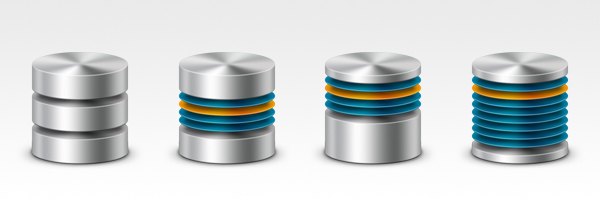
The Internet allows everyone to access mountains of information in the click of a button. But have you wondered where all that information comes from?
Although many imagine the Internet as some virtual non-existent space that floats around in the air, that couldn’t be farther from the truth. Websites and other Internet data, like all forms of digital data, are stored within hardware. Special computers called servers the hold millions of terabytes of Internet data from websites all over the world. And these servers connect to your computer via fiber optic cables that travel across countries and across continents. It may be hard to believe but there are actual objects that allow everyone on the Internet to stay connected.
So who owns these servers and how do websites end up online?
Servers are owned by web hosts or web service providers. And websites end up online through a service called web hosting.
What Is Web Hosting?

19 Important Features to Look for in a Web Host
Web hosting is “a service that allows organizations and individuals to post a website or web page onto the Internet” (Website.com). This is facilitated by a web host or a web service provider that connects, stores, and manages website data on a computer server.
When a person keys in your website address or domain name, the server (provided by your web host, of course) delivers your website data to their computers via an Internet connection. Most web hosts provide services that help you purchase your own domain name.
Looking for cheap domain registration? Check out WebsiteSpot for the best deals.
In a nutshell, web hosting is the combination of technologies and services that allow your website to appear on the Internet. All the virtual space your website occupies is leased out from your web host. So you can look at a web host as some sort of an Internet landlord.
How Do I Get My Website Online?

From 0 to Launch: 6 Steps to Building Your First Website
Once you’ve built your website–or even while you’re building it–the next step is to take everything online. And before a website goes online, it needs its own unique domain name.
As you probably know, each web page has a unique web address called a URL (Uniform Resource Locator) that distinguishes it from the rest of the Internet–like an Internet calling card.
The Internet has a worldwide system that registers all unique domain names, sort of a yellow pages for the World Wide Web. This prevents websites from overlapping and getting mixed up.
Usually, your web host will help you sort out which names are still available and give you several choices that fit your site’s profile. Cheap domain names can cost as little as $10 a year, sometimes even lower.
The key to a successful website is getting the right tools together. Web hosts such as WebsiteSpot can give you expert advice on which platforms are suitable to your website and/or online business. A good web host doesn’t merely take your website online. Often, it provides tools for content management, digital marketing, social media management, SEO optimization, and the like so that your website functions and performs according to your needs and objectives




